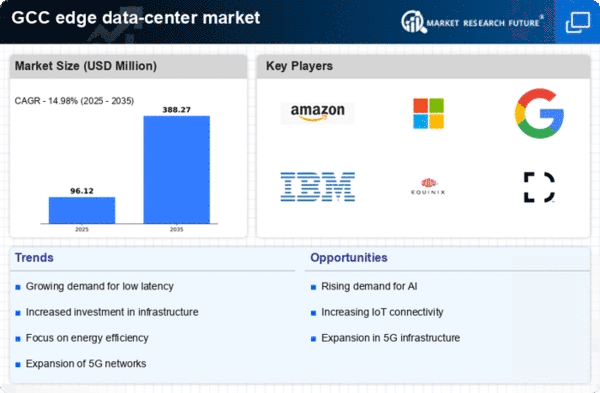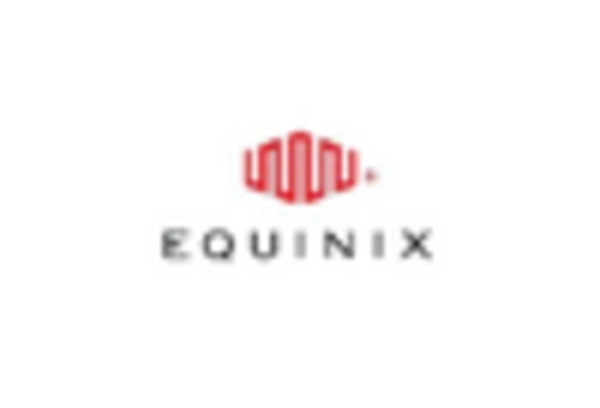Rising Data Consumption
The edge data-center market is experiencing a surge in demand driven by the exponential growth of data consumption across various sectors in the GCC. With the proliferation of digital services, including streaming, online gaming, and cloud computing, data traffic is projected to increase significantly. According to recent estimates, data consumption in the region is expected to rise by over 30% annually. This trend necessitates the deployment of edge data centers to ensure efficient data processing and reduced latency. As businesses and consumers alike demand faster and more reliable services, the edge data-center market is poised to expand, catering to the needs of a data-hungry population.
Adoption of 5G Technology
The rollout of 5G technology across the GCC is significantly influencing the edge data-center market. With its promise of ultra-low latency and high-speed connectivity, 5G is expected to drive the demand for edge computing solutions. As industries such as healthcare, automotive, and manufacturing increasingly rely on real-time data processing, the need for localized data centers becomes more pronounced. The edge data-center market is likely to see substantial growth as businesses seek to leverage 5G capabilities to enhance operational efficiency and customer experiences. Analysts predict that the integration of 5G with edge computing could lead to a market expansion of over 25% in the coming years.
Emergence of Smart Cities
The development of smart cities in the GCC is driving the demand for edge data centers. As urban areas become more interconnected through IoT devices and smart technologies, the need for localized data processing becomes critical. Edge data centers facilitate real-time data analysis, enabling efficient management of city services such as traffic control, waste management, and public safety. The edge data-center market is expected to grow as municipalities and private enterprises invest in infrastructure to support smart city initiatives. This trend not only enhances operational efficiency but also improves the quality of life for residents, making it a key driver for the market.
Increased Focus on Data Security
As cyber threats continue to evolve, the edge data-center market is witnessing a heightened focus on data security. Organizations in the GCC are increasingly aware of the vulnerabilities associated with centralized data storage and are turning to edge computing as a solution. By processing data closer to the source, businesses can enhance security measures and reduce the risk of data breaches. This shift is particularly relevant in sectors such as finance and healthcare, where data integrity is paramount. The edge data-center market is likely to benefit from this trend, as companies invest in secure edge solutions to protect sensitive information and comply with regulatory requirements.
Government Initiatives and Support
Government initiatives in the GCC are playing a pivotal role in shaping the edge data-center market. Various national strategies aim to enhance digital infrastructure and promote technological innovation. For instance, the UAE's Vision 2021 and Saudi Arabia's Vision 2030 emphasize the importance of advanced technologies, including edge computing. These initiatives often include financial incentives, regulatory support, and investment in digital infrastructure, which collectively foster a conducive environment for the growth of the edge data-center market. As governments prioritize digital transformation, the market is likely to benefit from increased funding and resources, further accelerating its development.
















